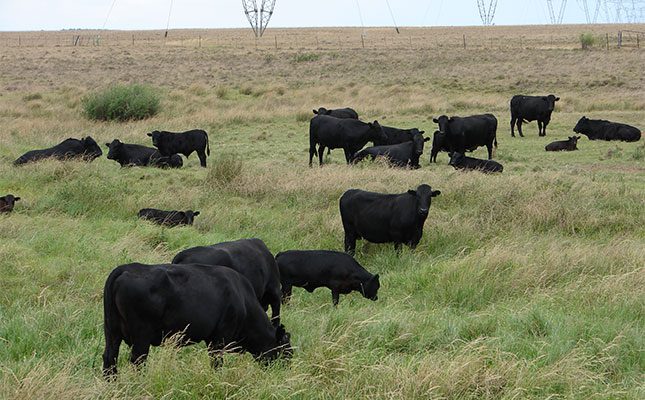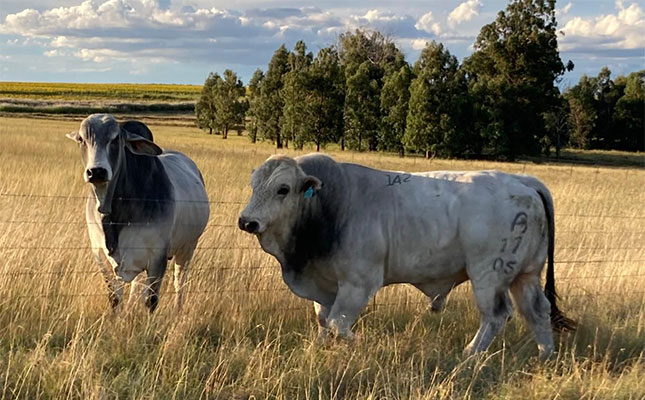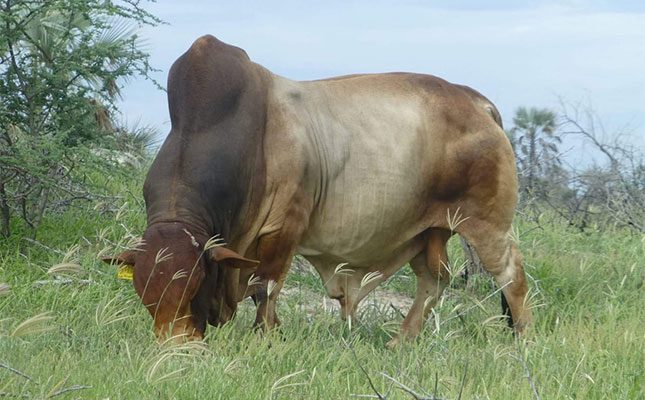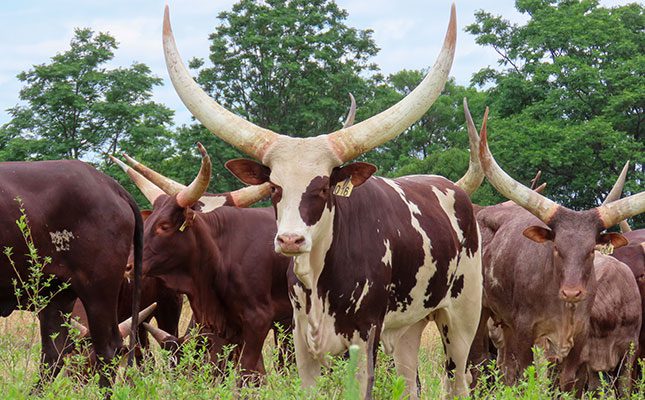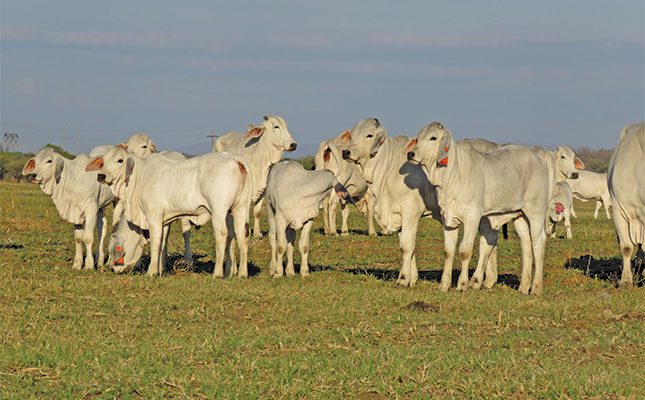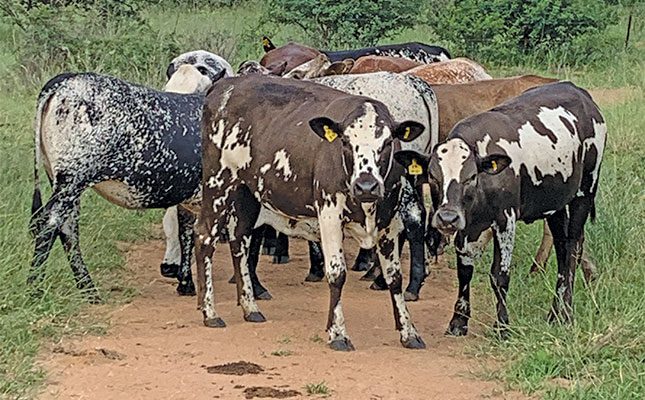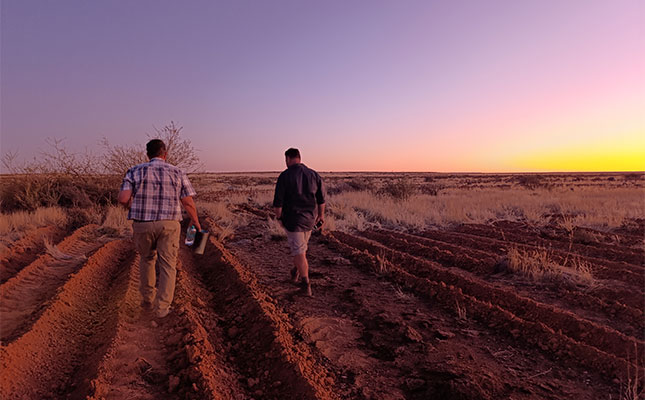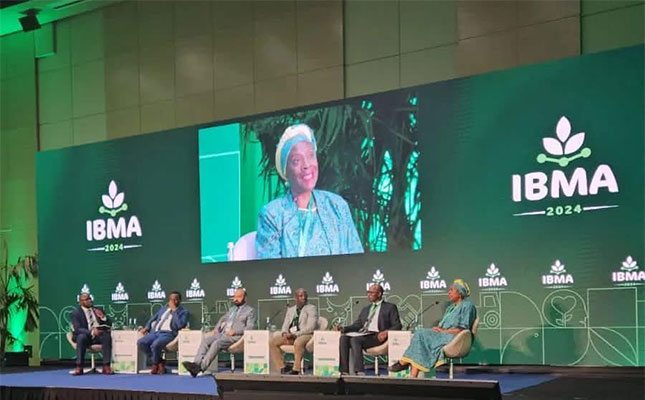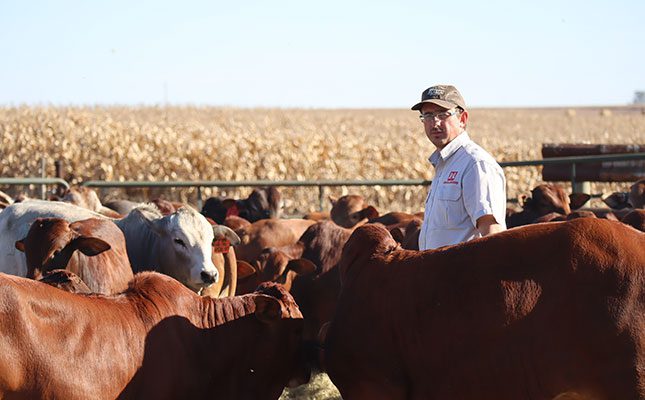
Mathews is the livestock manager at Janvos Landgoed in Davel, Mpumalanga. He heads up the commercial sheep, commercial cattle, and Boran stud divisions on the farm, and is part of the management team in the dairy division.
While he states unequivocally that farming is in his blood, and there is nothing else he would rather do, his journey is testament to the challenges that the sector faces for both young and older farmers.
READ Boran: the ideal choice for the commercial farming sector
Mathews is a fifth-generation farmer who grew up on a farm. His childhood was far from idyllic since the drought in the 1980s saw his father having to sell the family farm.
“Growing up, I was very negative about farming; I saw it as one long struggle. I promised myself I would never farm,” he said.
With farming off the table, his love of nature led him to pursue a BSc degree in environmental management and geography. But amid a challenging employment landscape, finding a job proved difficult. When he was offered a job on a farm, he took it. “I then realised that farming is part of me. Today, it is all I live and breathe for.”
Mathews, however, told Farmer’s Weekly that all challenges, including broad-based black empowerment (BBE), must be addressed with a positive attitude, in a manner that promotes inclusivity. “South African farmers are a nation of plan-makers. Although BBE is a unique challenge, every generation has had its difficulties, and I am certain we will prevail just as they did.”
READ The pitfalls and benefits of diversifying your farming operation
He noted that there was an increasingly positive sentiment among young farmers, who were adamant about making a success of food production in South Africa.
That he is an asset to the Janvos team is unmistakable. Jan Grey, owner of Janvos Landgoed, lauded Mathews for his passion and dedication.
“He has made his mark on this farm and the surrounding community. He is involved in the local farmers’ union, he is a senior selector for the Boran breed, and has a great ability to get things done,” Grey said.
With high input costs and no control over prices paid for cattle, Mathews focuses on holistic sustainability to keep the livestock division in business. This entails three areas: the environment, and the social and economic aspects.
“The cattle [division] must be profitable, while still allowing for the overall improvement of our natural resources. I have a grazing strategy that improves the veld over time, using a breed that is a non-selective grazer. Borans are an indigenous breed, so I don’t need to have a heavy hand with parasite control chemicals.”
Mathews’s social strategy entails empowering his team to reach their full potential, taking care to highlight each worker’s strengths.
To get the best return on investment, he focuses on seven products he can deliver from his herd: weaner calves, C-grade meat from older animals, young oxen for A-grade meat, commercial breeding cows, commercial bulls, and stud cows and bulls.
While Mathews admits that the drive to provide for his family is a primary motivator to get to work in the morning, his love for the cattle industry means that his job can hardly be considered work.
“It’s not a job, it’s a pleasure!”
Mathews will contend for the ToyotaSA/AgriSA Young Farmer of the Year title along with the winners from the other provinces. The winner will be announced in October.

